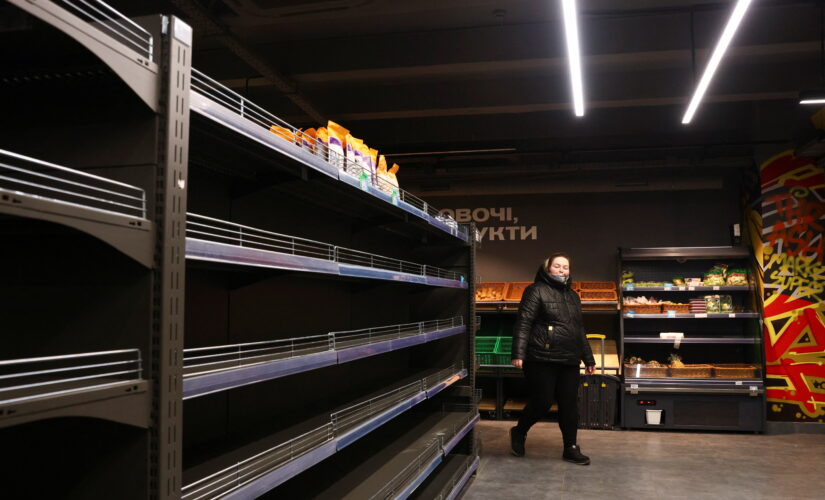NEWYou can now listen to Fox News articles!
Ukraine‘s food supply chain is “falling apart” with trains and bridges destroyed and supermarket shelves empty amid a swelling refugee crisis, according to a U.N. official and data from the agency.
RUSSIA INVADES UKRAINE: LIVE UPDATES
“The country’s food supply chain is falling apart. Movements of goods have slowed down due to insecurity and the reluctance of drivers,” Jakob Kern, U.N. World Food Programme (WFP) Emergency Coordinator for the Ukraine crisis, told a Geneva press briefing Friday from Poland.
Shelves in a supermarket stand empty, following Russia’s invasion of Ukraine, in Bila Tserkva, Ukraine, March 4, 2022.
(REUTERS/Thomas Peter)
Meanwhile, 3,270,662 refugees have fled Ukraine as of Friday since Vladimir Putin invaded the country Feb. 24, according to the U.N. Nearly 2 million of those have landed in Poland as the crisis in Ukraine becomes increasingly more dire.
PRESIDENT BIDEN, GIVE RUSSIA A CLEAR RED LINE ON WEAPONS OF MASS DESTRUCTION IN UKRAINE
Food and water supplies are running out in encircled cities such as Mariupol and WFP convoys have been unable to enter. Ukraine’s collapsing supply chains are “triggering a wave of collateral hunger that is spreading across the globe,” according to a statement on the WFP’s website.
Russia and Ukraine had exported about 30% of the world’s wheat, but the war has severely compromised their output driving up worldwide prices. Prior to Russia’s invasion, the WFP had purchased about 50% of its wheat from Ukraine.
With exports frozen, WFP is scrambling to secure other sources of wheat. “We are changing suppliers now but that has an impact on prices,” Kern said. “The further away you buy it, the more expensive it gets.”
CLICK HERE TO GET THE FOX NEWS APP
Due to the conflict and inflation, the cost of WFP’s global operations has shot up to an additional $71 million a month, which will hit vulnerable populations in Afghanistan, Ethiopia and Syria particularly hard, the agency said.
Reuters contributed to this report




